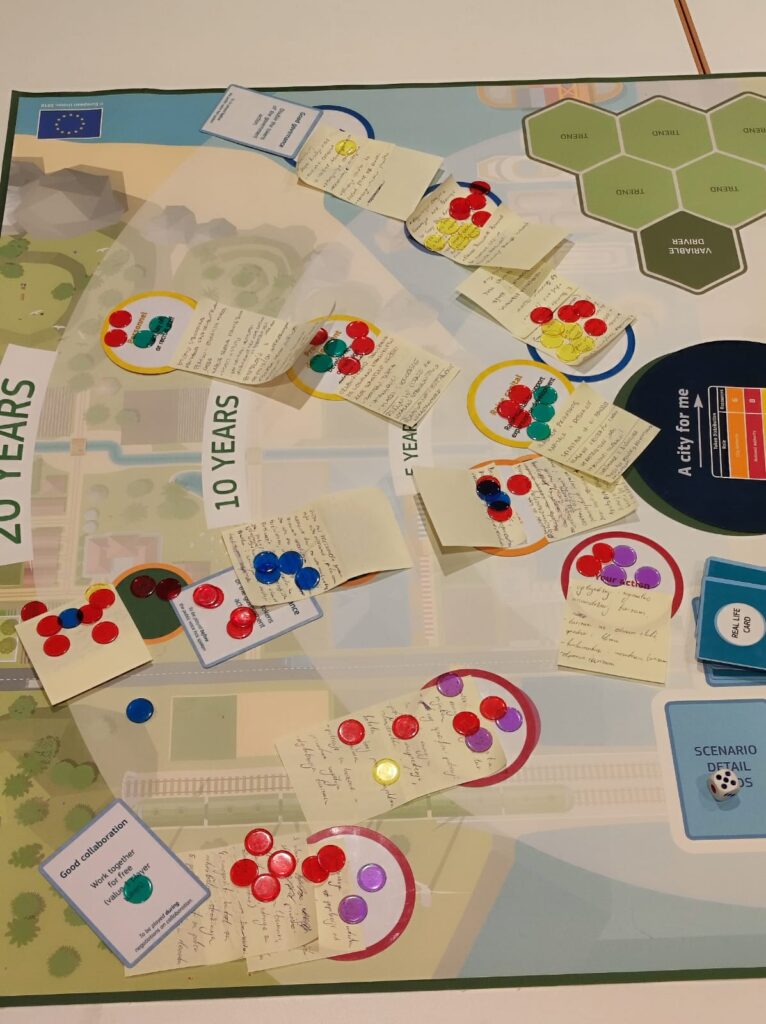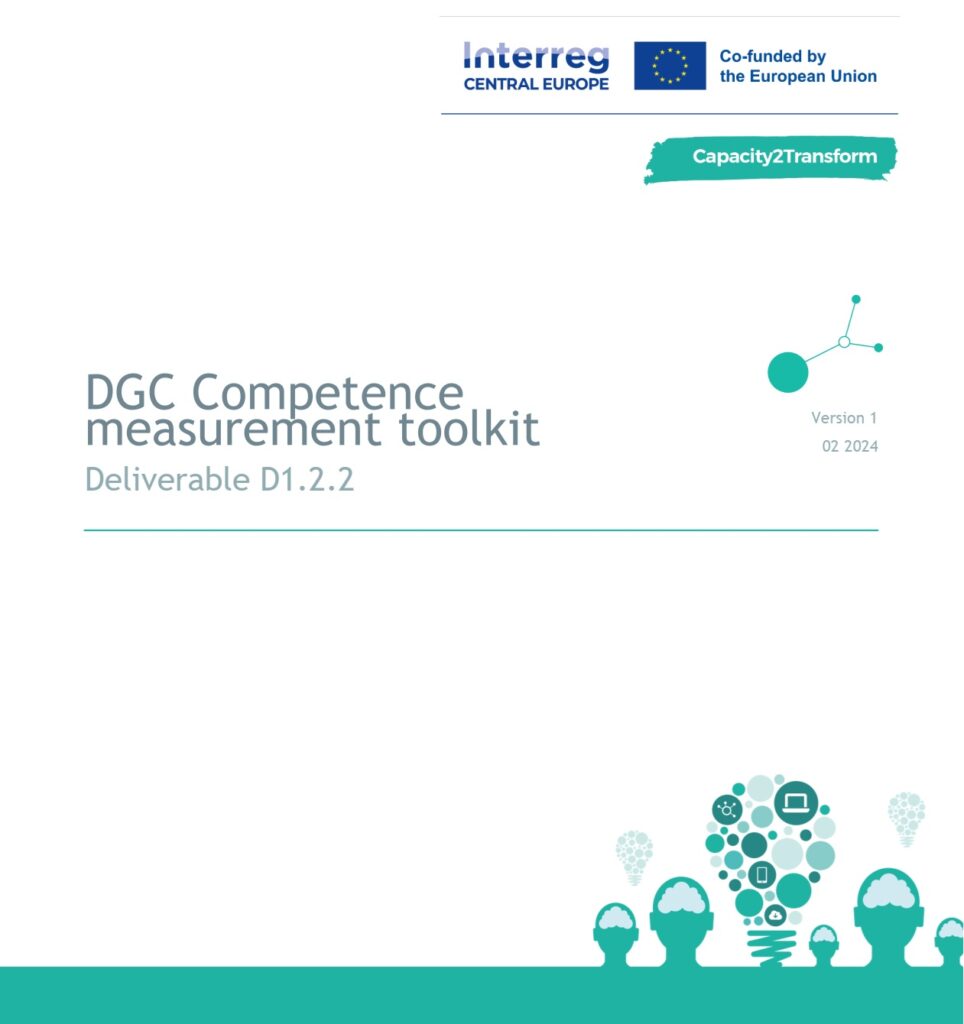
How do we prepare for futures that are uncertain, complex, and often contradictory? When it comes to addressing complex societal challenges, traditional methods of discussion often fall short. PowerPoint slides and panel debates may inform, but they rarely immerse participants in the real dilemmas that communities face. This is where serious scenario games come in—a method that merges learning, collaboration, and creativity into a single transformative experience.
What Are Serious Scenario Games?
Unlike conventional teaching or consultation formats, serious scenario games place participants inside a simulation of the future. Instead of passively receiving information, they actively take on roles—policy makers, entrepreneurs, citizens, activists—each with their own interests and constraints. Through dialogue, negotiation, and decision-making, participants shape the trajectory of a shared scenario.
Every choice has consequences. A decision to prioritize economic growth may strain environmental resources; a focus on strict conservation may undermine local livelihoods. By experiencing these trade-offs firsthand, participants confront the complexity of sustainability not as an abstract idea but as a lived reality.
From a methodological perspective, serious scenario games combine elements of:
- Systems thinking – highlighting how different sectors and interests are interdependent.
- Experiential learning – knowledge is gained not by listening, but by doing.
- Collaborative problem-solving – participants learn to negotiate, compromise, and innovate together.
- Foresight methods – exploring short-, medium-, and long-term time horizons to understand how today’s choices ripple into tomorrow.
Insights from Practice
When applied to rural tourism, this method proved particularly powerful. Participants envisioned futures over the next 5, 10, and 20 years, balancing local community needs with broader policy objectives. They identified opportunities for infrastructure development, renewable energy, heritage protection, and new forms of tourism, but also revealed bottlenecks: digital gaps, lack of cooperation, seasonality, and low awareness of sustainable practices.
Why This Approach Matters
The strength of serious scenario games lies in their ability to make the future tangible. Instead of abstract scenarios written in reports, the future becomes something participants can act out, test, and even feel emotionally invested in. This playful immersion fosters both strategic insight and a sense of ownership: when people experience the challenges of tomorrow, they are more motivated to shape them responsibly today.
Moreover, the method democratizes the conversation. Farmers, policy makers, business owners, and citizens alike can contribute their perspectives on equal footing. By shifting from debate to co-creation, serious games reveal synergies that are often overlooked in conventional policy processes.
A Tool for Transformation
Serious scenario games demonstrate that play can be profoundly serious. They invite us to engage with uncertainty, to imagine multiple futures, and to co-create pathways that are not only desirable but also resilient. As Europe seeks to transform its rural regions in the face of climate change, demographic shifts, and economic pressures, such tools can help bridge the gap between vision and action.
In the end, playing the future is not escapism—it is preparation. By simulating what lies ahead, we equip ourselves with the insights, creativity, and collaborative spirit needed to shape more sustainable and inclusive realities.










